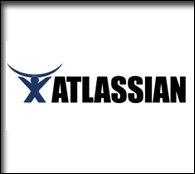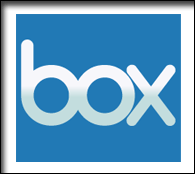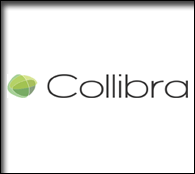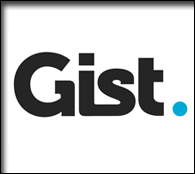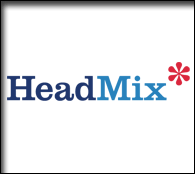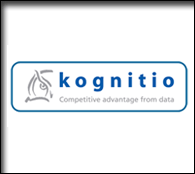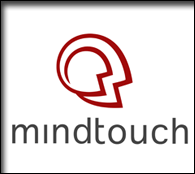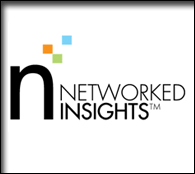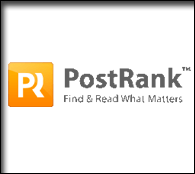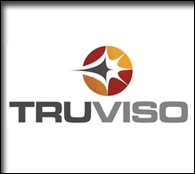Archive for February, 2008
Structure, Un-structure and Dry Toast
by Eric Norlin on Feb.28, 2008, under defrag "theory"
Fraser over at AdaptiveBlue has me thinking about the “semantic web” this morning. More specifically, he has me mulling over Matthew Ingram’s idea the the “semantic web” (as a talking point) is as boring as “dry toast.”
AdaptiveBlue is what some folks might call a semantic web company. Really, though, its more helpful to think of what they’re doing as “contextual browsing.” Is that just personalization all over again? Eh - not really.
Personalization tailors content within a specific domain (a website) to one individual. At least, that’s how I think of it.
Contextual Browsing builds implicit structure into unstructured data in a cross domain setting.
Which brings me to one of the key qualities of the defrag space: working cross domain.
Whether we’re talking about enterprise 2.0 tools, semantic tools, implicit tools, collective intelligence tools — the common denominator is working “cross-domain.” Enterprise 2.0 (and online collaboration) tools work across departmental domains (or knowledge domains, or employee domains). Implicit tools bring to the surface bits from varying domains. Collective intelligence tools cross the barriers of individual beliefs and knowledge. And contextual browsing takes the experience of the web from being one of a localized “place” (a site) to a network of connected ideas.
And that’s not boring.
Thanks for the push, Fraser. Good stuff.
Predictive Markets and Collective Intelligence at Defrag
by Eric Norlin on Feb.26, 2008, under Uncategorized, conference topics
Last year’s Defrag ended with attendee surveys. One of the top topics that folks wanted to explore more deeply was that of “collective intelligence/predictive markets.” Accordingly, I’ve been digging in.
It is important to note (I think) that Defrag is not intending to be “just” a conference focused on CI. Rather, we want to lay out terms like enterprise 2.0, implicit web, semantic web, online collaboration, and collective intelligence in a circle — and then explore the intersecting space in the middle. All of this is in service to the main purpose of Defrag — to accelerate the “aha” moment — or, to foster tools that help us achieve insight faster.
In that context, I’ve been having conversations with folks like Tim Wolters over at Collective Intellect and Mat Fogarty at Xpree (as well as pinging Defrag’s long-suffering advisor, Paul Kedrosky).
We’re beginning to circle around topics like:
Discovering innovation via cross-boundary (external and internal) predictive markets
Collective Intelligence as a means for econometric marketing models for social media
Mining implicit data for decisions — they may be faster, but are they better?
….and various other things that I don’t yet understand all that well (all the more reason to have a conference). ![]()
I bring this up because I’m now adding folks like Matthew Hurst (who was at the last Defrag), Greg Linden, Adam Siegel, and Roger Ehrenberg to the kinds of folks that I’m following (and looking to interact with).
My hope is that we can begin to flesh out not just what CI should mean and do, but (more importantly) how it connects to things like widgets, feeds, implicit tools, semantic tools and collaborative tools. The *intersection*; the bringing people together that don’t normally see themselves as working on the same problem-set is really where the great stuff we can do lies.
If you’re in this area, and I should be talking to you, please get in touch (via comments or via email enorlin [rhymes with bat] mac.com).
Getting FriendFeedly
by Eric Norlin on Feb.26, 2008, under general
I’ve been hearing rumblings about FriendFeed lately. I even went there the other day to look at it. And then something magical happened: I decided to “sign up.” I anticipated yet another badly orchestrated signup process that required a bunch of manual hacking. I was wrong. A couple of clicks and (to quote mr. gump) I was running!
FriendFeed (for those interested) aggregates various “feeds” (blog, rss, twitter, flickr, otherwise) into one stream — and (more importantly) auto-searches my Facebook friends (or whomever) to discover who I should be subscribed to. Even more impressively, it recommends additional subscriptions based upon who my friends are (think: amazon recommendation algorithm for friends).
A few days ago Graeme Thickins was wondering who would be this year’s Twitter at SXSW.
My money’s on FriendFeed.
(Totally aside from this: Can we puh-leaze stop mashing together two words and capitalizing the second? It is a cute thing when one company does it, but now *every single company in the valley* does it (hyperbole alert)…..ahhh, the land of innovation.) ![]()
More ya-ya for the gumbo
by Eric Norlin on Feb.25, 2008, under general, industry stuff
Brian Oberkirch is one of my favorite bloggers for several reasons: 1) he’s from nawlins (that’s “New Orleans”); 2) he’s one helluva writer; and 3) he’s always thinking really cool thoughts. And so, when I read Brian saying that he feels like the internet conversation is becoming Gumbo ya-ya — well, you just gotta love it.
What, you ask is “gumbo ya-ya”?
Quoting:
“I’ve whinged before that everything online just feels like gumbo ya-ya, everyone talking at once. Techmeme & my trusty feed reader just aren’t doing it anymore. I’ve gone through a few rounds of blowing up all my feeds and adding them back. What I’ve hit on lately, and what feels right, is just following those who I think are the smartest, most courageous, savvy, inspiring people. Sometimes they blog, but more often I’m following their bookmarks, what events they pick, books they recommend.”
Yep - Brian’s getting implicit. He goes on to talk about FriendFeed, SocialThing and Jaiku - all of which (collectively) I’m wrapping my head around. But the problem is there: we live in a distributed land of abundant information — and reaching any level of insight on that raw data demands that we develop effective tools to help us. (And NO we do not need YAP ["yet another platform"].)
(note to self: Get Brian to this year’s Defrag - he had to miss last year because of a client engagement.)
Discovery and Search
by Eric Norlin on Feb.23, 2008, under defrag "theory", general
Pete Warden has a post up about how “discovery” is different from “search.” We’ve included “next-level discovery” (embodied by companies like Lijit and AdaptiveBlue) as a defraggy topic since day one, and Pete does a great job of teasing out some nifty threads.
The main points that Pete makes include:
1. “Search is goal-oriented, discovery is about the journey.”
2. “Search is solitary, discovery is social.”
3. “Search is about universal answers, discovery is customized. ”
4. “Discovery is a background task.”
ahhh, there’s that whole “implicit” thing again. ![]()
Defrag twitter
by Eric Norlin on Feb.21, 2008, under general
Last year, my Eventvue buddies (rob and josh) set up a twitter for Defrag. Being a notoriously late adopter (insert ironical paradox here), I said “thanks” and went back to the 60 day out insanity that is/was my life leading up to a conference.
Well, dammit, I think its time to adopt!
Defrag’s twitter is:
twitter.com/defrag
Feel free to follow along as I post mostly meaningless tweets ![]()
Cisco starts making the implicit explicit
by Eric Norlin on Feb.19, 2008, under conference topics, general
This article is a good intro into the kind of “productivity enhancements” I’ve been harping on over here at Defrag.
Quoting:
“The driving force behind the initiative is Chief Executive John Chambers’ belief that the second phase of the Internet revolution is under way and it could be more far-reaching than the first.
“The whole concept of work will change,” Chambers said in a recent interview.
The tools he has chosen to bring about that change are the social-networking technologies teenagers flock to on sites like Facebook and MySpace. Chambers hopes the adaptation of those technologies to business ends will create a wave of productivity growth that will fuel its aggressive expansion.
“If I don’t drive productivity by 10 to 15 percent a year, I can’t move into market adjacencies, much less produce more profit for my shareholders,” he said.”
And:
“”I think we are definitely making decisions faster,” said Susan Bostrom, executive vice president and chief marketing officer. “I hope those are better decisions.”
She said Cisco’s selection of a new musical logo in six months is testimony to the faster pace. Normally developing a five-note tune would take 18 months. The company opened up the process by letting as many as 12,000 employees fill out surveys last summer with ideas for the logo. Some created tunes of their own. When a small group of finalists were picked, the employees voted on them.
“It’s not about making a (business) process 10 percent more efficient,” said Proctor. “We are really going for a whole new ballgame. What we’re building is a giant social network.”
To allow ideas to percolate up from deep inside the organization, Cisco has promoted the use of wikis and blogs on which employees can air thoughts and suggestions. The company also is preparing to roll out a Facebook-like social network to let workers link to colleagues and search for employees with special expertise.”
(forgive my quotes within quotes - one tends to lose proper grammatical style when blogging. And by “one,” I mean “me.”)
The whole article is about tools that are helping to unearth implicit knowledge and data, and turn those into “insight.” Or as one tech conference (ahem) calls it, “accelerating the ‘aha’ moment.”
Paul Kedrosky and I had a short email exchange last week about my thesis that this recession leads us to another “tech bubble” — with me arguing that the bubble will get blown around productivity and enterprise-aimed software. I think those “productivity enhancements” come in the form of the implicit, semantic, enterprise 2.0-y web stuff that we keep talking about here.
And it looks like Cisco is taking that to heart.
A Call for Ideas and Language
by Eric Norlin on Feb.15, 2008, under conference topics
From the very first days of Defrag (you know, back in the early mists of time - like 2007), it seems that we’ve always struggled to really effectively name what exactly we were talking about. In fact, I prefer it that way, as I think that the “defrag problem set” is big enough that trying to close it in too much really limits the impact of where we can go and what we can accomplish together.
That said, I still think that “languaging” (is that a word?) what we’re talking about is extremely useful, as it helps the defrag community that gathers push the topic forward. Part of what any good gathering like Defrag should do is bring together disparate parties that don’t see themselves as working on the same thing, and help them to reframe the problems into a larger, common set.
All of that is a bit of a prelude to where I’m at now - throwing words, ideas and concepts on to pages and into conversations, as we begin to move toward the large sweeps of content and themes for this year’s conference. Accordingly, I’m writing things like this:
“As online data is growing and fragmenting at an exponential pace, individuals, groups and organizations are struggling to discover, assemble, organize, act on and gather feedback from that data. The “problem†of re-arranging how we deal with data, so that the organization, discovery, usefulness and intelligence of it becomes an *implicit* act is one of the truly great problems facing technologists (in both an enterprise and user-facing sense). In the largest sense, we’re all looking to build and use tools that help us to accelerate and augment the pace at which we achieve insights on raw data.”
And then, thinking (and writing) that the intersection of that big idea is somewhere between topics like:
“Enterprise 2.0″
Online Collaboration
The Implicit Web
Semantic Tools
Collective Intelligence
Social software (networks)
…ie, put those topics around the edge of a circle and the blank-shared space is where Defrag lies.
Enough context - the bottom line is that Defrag won’t be doing a “call for papers,” that’s just an impersonal way of operating, and we’re nothing if not personable. Instead, though, I’d love to hear from all of you about ideas and language. I’m beginning to think I know what we should be talking about, and I’m gathering a list of topics (and people), but I’d love to see a deluge of thoughts coming from past and future Defrag folk as well.
The gates are wide open. Fire away (enorlin AT mac.com).
Gettin’ Defraggy with it
by Eric Norlin on Feb.12, 2008, under defrag "theory", general
I’m pulling together a bunch of different threads and bread-crumbs today, and they may or may not make any sense when I’m done, so bear with me.
Thread 1: Esther’s piece about The Coming Ad Revolution, specifically two quotes (strung together):
“What might seem like a horribly complex and tedious task to their elders — categorizing “friends,” managing news feeds, handling intersecting communities of contacts — feels natural to the Facebook users of today. They want more granularity of control, not less…The new model creates a more trusted environment for reaching high-value, frequent purchasers, whether of airline tickets, electronics, clothes or other items. Where does that leave the less-frequent purchasers? Probably looking to their friends rather than to advertising for advice. I’m an expert on travel; my friends may look to me for hotel choices. When I’m in the mood to buy a book or a new computer, I’ll check out what my friends on Facebook are doing.”
Thread 2: Jeff Nolan’s piece about attention data, specifically these quotes:
“Last year we did expose something we were involved with that speaks to the user perspective of attention, APML. This standard, which builds on the success of OPML, is attractive for some very important reasons. First and foremost, APML creates a single database about user subscriptions and attention data items, rather than attempting to merge and sync separate databases around each. Second, it’s a true industry standard that is emerging through a process of cooperation rather than imposition, and lastly, it makes attention data portable.
We fundamentally believe that data about your browsing habits is yours and that means you should be able to take it with you wherever you go. APML does this much in the same way that OPML does it for subscription data, and that has been a very successful model.
In many ways the ultimate commercial value of attention data is speculative, but we are not totally flying blind here either as we do have concrete examples about how it is enhancing the value of network functions that are important to our consumer and commercial clients. Speaking as a user, the APML piece is very important to me because I can accumulate this data over time and transfer it from service to service without penalty, and as more services take advantage of APML I will receive benefits as a user.”
Thread 3: This piece gloriously titled, “Is the Tipping Point toast?” about how networks *really* work (or, at least, the latest scientific work on it).
Enough threads, let me piece this together:
Last year’s Defrag really got me thinking about all of the implicit qualities that lie in our “networked actions.” So, for instance, Esther’s examples around FB involve a tremendous amount of “implicit-ness.” Example: I’ve only been face to face with Jeff Nolan 3 times in my life, but I trust his opinion on a wide range of topics- and I gather implicit bits about that opinion by interacting with his “personal media.” Even further, I trust his networked actions. If Jeff intros me to someone, I pay attention — not because I’m accountable to Jeff, but because Jeff’s actions within his own network have accountability.
His *attention* has gotten authoritative for me (at least around a certain set of topics).
As has Esther’s, or Chris Shipley’s (as it is for all DEMO go-ers), or Paul Kedrosky’s or Clay Shirky’s.
As a sum, my network of “authoritative attention” provides me with a pool of resources. Those resources are not tied to any platform (FB, LinkedIn) or any specific widget, and, as Jeff points out, the ability to move that data (via APML, etc) is becoming a bigger and bigger issue (I saw a CNN piece on it today, and if CNN is covering it, then you know its not “cutting edge” anymore).
Now throw in the piece about the “tipping point” being toast. The whole tipping point idea was based around “influencers” — that somehow if you could market to influencers, you could start a meme or trend or some other four letter word that’s hip. But its really not about marketing to influencers, its about gathering a pool of authoritative attention resources (your network) that begins to act as an implicit filter for the information overload that we all experience.
That network of resources is the most important “non-tangible” resource that any of us in the “knowledge worker” business have. It is also the single most tedious and clunky thing that we have to interact with — we simply don’t have good tools that help us implicitly mine that pool.
THAT is Defrag. That is why the Defrag topic is not “simply” web 2.0 stuff, but encompasses a lot of it. That is why Defrag crosses the enterprise/end-user barrier. And that is what makes the conference’s topic so unique.
Its taken me one year to start to put a rope around how to say *what* Defrag is. I’m not quite there yet, but at least that big, gray-space problem that I first began emailing back and forth with Brad about back in late 2006 is getting a little more clarity.
Defrag’s 2008 advisory board
by Eric Norlin on Feb.11, 2008, under advisory board
I’m pleased to announce Defrag’s advisory board for the 2008 conference: Esther Dyson, Paul Kedrosky, Chris Shipley and Clay Shirky.
At least that’s how it stands for now (these things are rarely ever “complete” - and additions are always possible).
Nonetheless, I’m loving this lineup — here’s what we’ve got:
Esther: internet guru and court jester, and the organizer of the old PC Forum shows (which you’ve all me heard drone on about wrt “greatness”).
Paul: VC, media personality, finance expert and all-around really smart guy (Paul and I rarely get to interact, so thankfully he’s on CNBC regularly).
Clay: Was an expert on “social software” before social software existed (and he’s got a new book coming out).
Chris: probably the world’s foremost authority on startups and launches, and the organizer of DEMO.
Not bad, eh? Let’s just say I’m feeling like we’re starting off with a good foundation. ![]()
